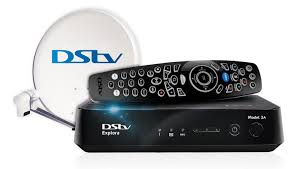Many a freelancer has plunged right into business without much preparation. Some swim, others sink.
A blind plunge might work, but it’s chancy. Nailing down the following things before making the leap will help you stay afloat in your new venture.
A fat emergency Fund
Self-employed folks and freelancers are some of the happiest workers. The key to enjoying that freedom is a solid emergency fund. Without money to tide you over when work is thin — as it will be now and then — you can forget your freelance dreams.
Some financial advisers suggest your emergency fund should cover you for six months. Consider more, though. It can take 60 to 90 days or more to complete some jobs, land new clients, or get some clients to pay you.
A Budget
Dealing with a variable income is one of the biggest challenges of freelancing. Your payments might arrive intermittently with long droughts between. So, you’ll need a budget structure that helps you plan confidently.
Steady nerves
Freelancing is great for all the reasons you’d suspect: flexibility, freedom from office politics, less commuting and more job satisfaction are a few. But the insecurity never stops.
Do a gut check to be sure you can embrace the uncertainty before leaving a good day job.
Backups for your backups
Redundant systems are crucial for freelancers. Don’t let a computer failure make you miss a client deadline. Have a dependable second computer as a backup.
It doesn’t have to be a brand new top-of-the-line system, just something good enough to reliably get you online and back to work.
Also, back up your work constantly and automatically to your computer. In addition, backing up both to a Cloud storage system (Backblaze, for example) and to an external drive will give peace of mind. That sounds like overkill until you turn to one of your backups in a pinch and find it’s not working as hoped.
A wee bit of computer savvy
Nothing makes you appreciate your last employer’s IT department like being up a creek without technical support.
It doesn’t hurt to be a computer genius, but it’s not required. When your machine or your software stops working, take a deep breath, think things through, check your connections and search the internet for solutions.
Health insurance
If you’re walking away from a company-paid health insurance plan, know in detail what will replace your insurance after your insurance coverage is up.
Learn in advance how much your premiums cost, how much they could grow and how you will pay noncovered medical expenses.
A tax advisor who understands freelance life
You’ll need a tax adviser experienced at working with freelancers. Even if you’re happy doing your own taxes, consider professional help for the first year to understand the requirements, get the right start with bookkeeping, and have help weighing whether to incorporate.
One thing you’ll miss is your old employer’s contributions toward your Social Security and Medicare taxes. Now that you are both employer and employee, you’ve got to pay all of it.
A plan for having fun
Many freelancers wear themselves out by neglecting everything but work. Don’t fall for it. The more tired you get, the more you spin your wheels.
Work discipline includes making and sticking to a plan for getting away from your desk, socializing and exercising regularly.
Child care
Even with older children, you’ll want to line up child care in case you have to pull an all-nighter to meet a deadline or jet out of town unexpectedly.
At the minimum, arrange with a neighborhood teenager or a daycare provider to cover you for a few hours a day or during important phone meetings.
Line up backups, too, in case your regular child care provider has a crisis of his or her own.



